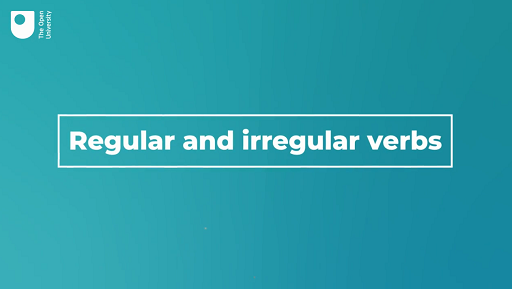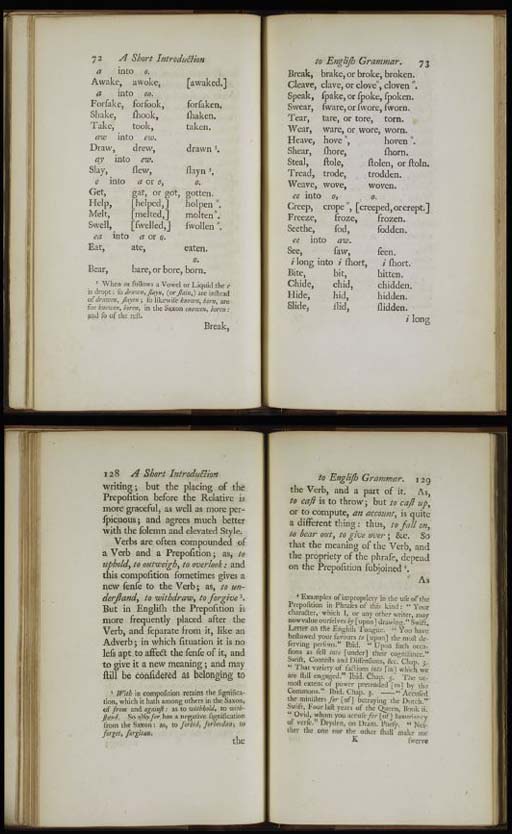2 Regular and irregular verbs
So far, you’ve been working with some fairly well-behaved verbs. However, there are a small number of verbs in English that don’t always play by the rules. For example, we sing but we don’t singed, we run but we don’t runned, we hide but we don’t hided. We call these special cases irregular verbs.
Activity 2 Spotlight on irregular verbs
Watch the video below which explains what irregular and regular verbs are. After watching the video, complete the following activities. You can replay the video as necessary.

Transcript: Video 1 Regular and irregular verbs
Activity 3 Irregular past and present
Fill in this table with the standard forms of the irregular verbs mentioned in the video. A regular verb has been included for comparison.
Remember:
- Present tense = the basic form of the verb you find at the start of a dictionary entry
- Past tense = the simplest form of the verb used to refer to past time
- Past participle = another past form used in multi-word verbs
| Present tense | Past tense form | Past participle |
| walk | walked | had walked |
Comment
The forms in italics aren’t specifically mentioned in the video, but you may have filled them in yourself.
| Present/base form | Past tense form | Past participle |
| want | wanted | had wanted |
| hide | hid | had hidden |
| bring | brought | had brought |
| come | came | had come |
| go | went | had gone |
| be | was/were | had been |
| stand | stood | had stood |
| find | found | had found |
| bite | bit | had bitten |
| see | saw | had seen |
| throw | threw | had thrown |
| cut | cut | had cut |
| bet | bet | had bet |
Activity 4 (Un)grammatical?
What does the video say about sentences like ‘I seen him’ and ‘I’ve went’?
Discussion
While ungrammatical in standard British English, these are grammatical in non-standard dialects of English, and are used in casual speech by many people.
Modern linguists and grammarians study language as it is actually used, rather than focusing on how people think it should be used. They don’t generally find one form of a language better than others. This tolerant and permissive attitude makes little impression on many members of the general public, who hold strong opinions about the ‘wrong’ and ‘right’ way to speak (usually the way they do, of course). So despite what linguists say about all dialects being equally valid, many would feel that it may be safest to approximate more to a standard variety of English in, say, a job interview.
Having considered how the past tense is expressed in English, you’re now in a position to look at a real text and consider how it is used in a (very famous) story.

